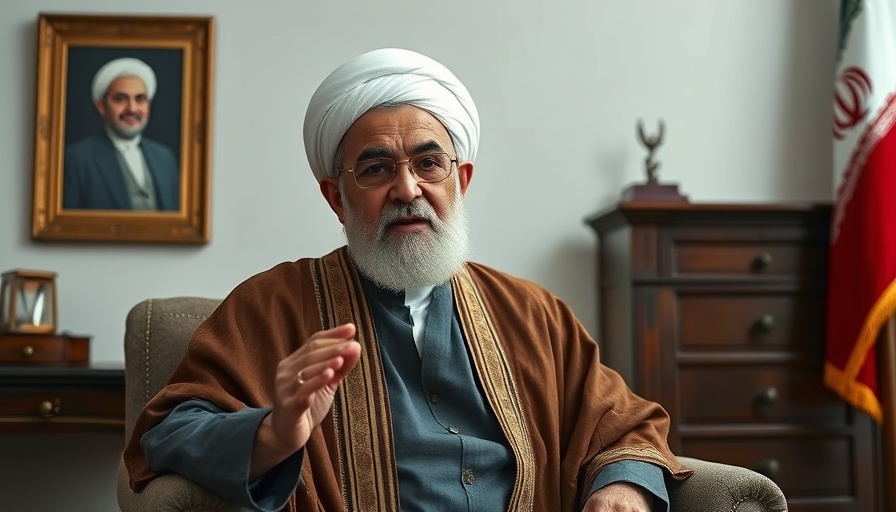
The Fallout from U.S. Bombing: What Khamenei Really Means
In a recent statement, Iran's Supreme Leader Ayatollah Ali Khamenei declared that the U.S. bombing campaigns against Iran have yielded no strategic gains. This assertion, while polarizing, opens up a deeper examination of Middle Eastern geopolitics and the tipping points that continue to shape relations between Iran and the United States. For many in Iran, this rhetoric resonates with a historical narrative of resistance against foreign intervention that dates back decades. The strongman of Iran's political landscape believes that the bombings have only solidified anti-American sentiments and emotions within the Iranian populace, reinforcing their resolve.
Understanding the Psychological Impact of Military Actions
Khamenei's comments are not merely political rhetoric; they echo the sentiments of many who have become weary of prolonged conflict. Research highlights this phenomenon: military actions often breed deep psychological scars that can affect generations. In Iran, citizens are more than aware of the U.S.'s past interventions. This historical context plays a critical role in shaping their national identity, reflecting sentiments of pride and resilience. Khamenei's assertion taps into this collective memory, suggesting that the U.S. military efforts have inadvertently fostered unity among Iranians rather than dissipating their defiance.
A Perspective on U.S. Foreign Policy Strategies
The U.S. approach in the Middle East has historically been contentious and often perceived as heavy-handed. Khamenei's remarks call into question the effectiveness of such tactics, echoing a sentiment expressed by various political analysts. Many argue that the United States might benefit from reassessing its strategies, focusing more on diplomacy rather than military action. By fostering dialogue and leveraging soft power, there exists an opportunity to reshape narratives that have long been defined by conflict.
The Role of Misinformation and Propaganda
Moreover, misinformation and propaganda play crucial roles in how citizens view military interventions. In both Iran and the U.S., narratives are often manipulated by those in power to serve political ends. For Khamenei, framing U.S. actions as failures is a strategy that reinforces his administration and distracts from domestic issues. By positioning the U.S. as an adversary that cannot achieve its goals, he solidifies his base’s support. Similarly, American media often sensationalizes military victories, glossing over the consequences faced by local populations, and thus skewing public perception.
Looking Forward: Predictions for U.S.-Iran Relations
Despite the grim rhetoric, the future holds potential avenues for peace. The importance of strategic diplomatic engagement cannot be overstated. With changing leadership in the global arena and a growing realization of the futility of perpetual warfare, a pivot toward constructive dialogue may emerge. Both nations face the shared challenges of economic instability and sustainable development, areas where collaboration could yield mutual benefits. The pressing need to address climate change adds urgency to united efforts, and could be a central theme in future discussions.
Conclusion: Stepping Into a New Era of Engagement
As the U.S. reassesses its foreign policies, insights drawn from Khamenei's statements should not be overlooked. Moving beyond militarized tactics toward understanding and engagement could define a transformative epoch. For both Americans and Iranians, fostering connections based on empathy and shared challenges may be the key to breaking free from the restraints of historical grievances and paving the way for a sustainable future.
 Add Row
Add Row  Add
Add 



Write A Comment